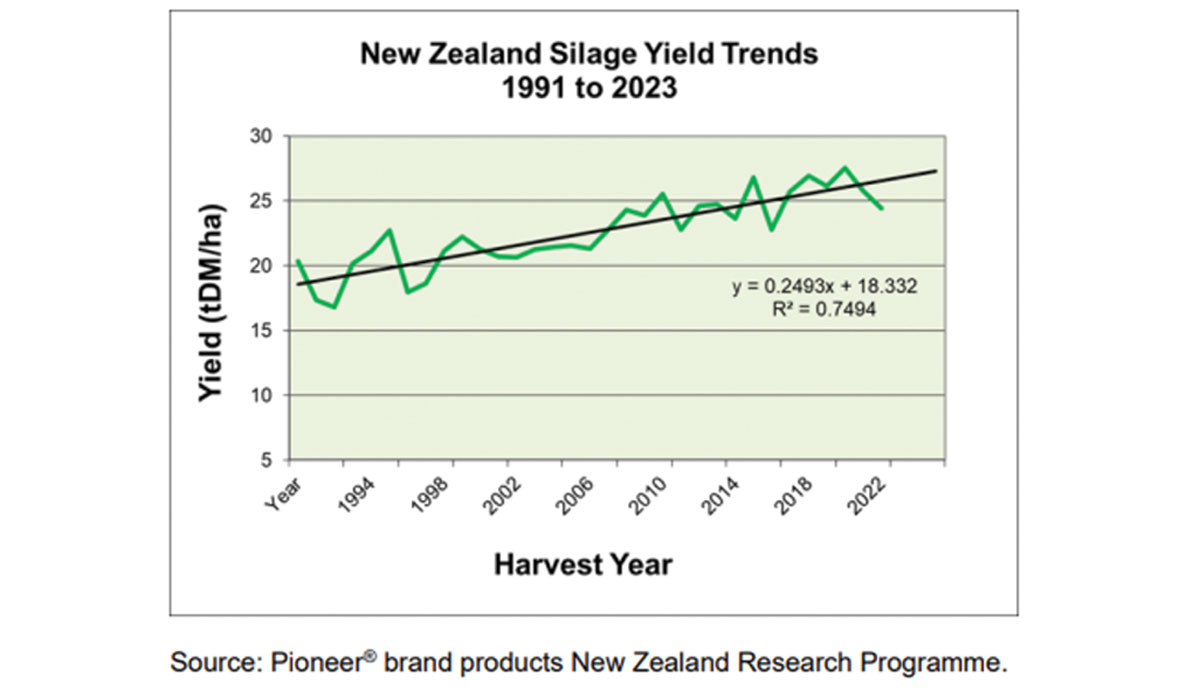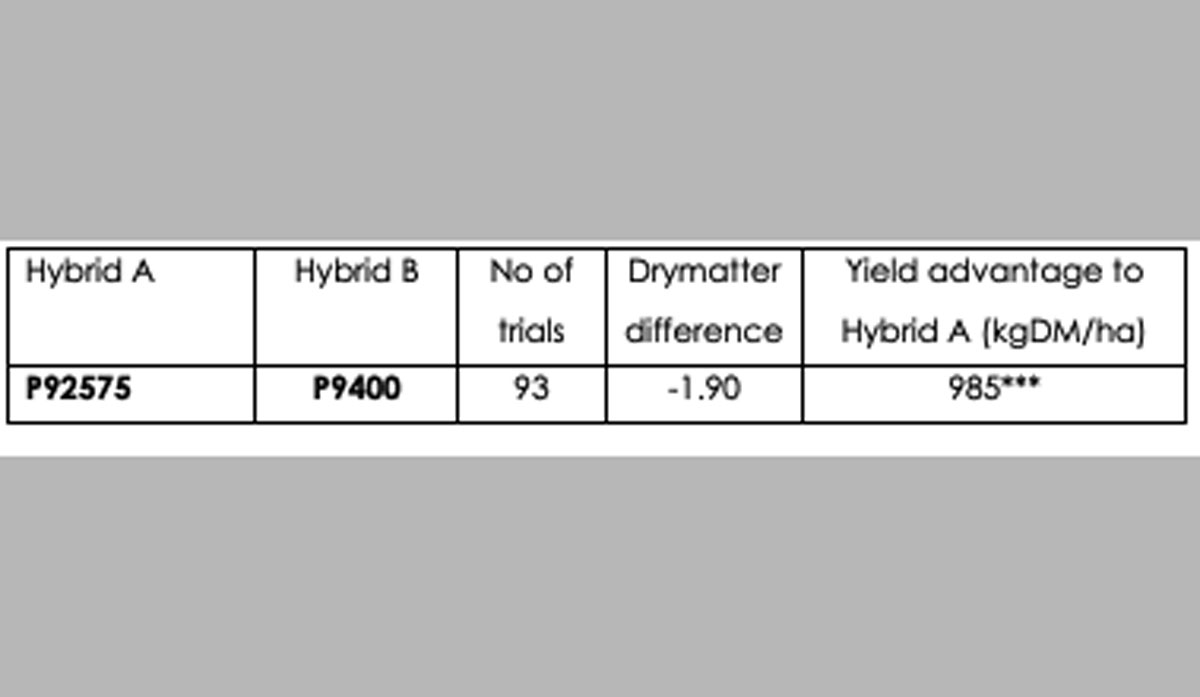Hitting heifer liveweight targets
Early December marks a key transition for many dairy farmers, as weaned replacement heifers head off-farm to grazing.
The time of the season is a great time to sit down with your Pioneer area manager and merchant representative to discuss maize hybrids. Choosing the right maize silage hybrid to plant for your environment can make a big difference to yield and profit.
Crop management and breeding more defensive and high yielding hybrids have resulted in an annual gain in maize silage yields of 250 kgDM per hectare per year (Figure 1). As a result, a newly introduced Pioneer hybrid will usually have a considerable yield advantage over older hybrids.
So how should you go about selecting the right maize silage hybrid?
Step 1: Choose a hybrid that has the right maturity.
Maize hybrids require different amounts of radiation to reach harvest maturity. Short maturity hybrids have lower comparative relative maturities (CRMs) and require less radiation than longer maturity hybrids (higher CRMs). The Pioneer® Brand maize silage catalogue for 2024-25 provides an approximate number of days from planting to harvest, by district, for all Pioneer® brand maize hybrids. This guide is particularly useful when you are targeting a specific date to have the next crop or permanent pasture established in autumn.
Step 2: Choose a hybrid that has the right agronomic traits for your environment.
 |
|---|
|
Figure 1 |
Selecting hybrids which have high ratings for the agronomic traits that are important in your environment will help ensure stable yields over a number of years. For example, if you are planting maize in a warm, humid environment with a history of Northern Leaf Blight (NLB), chose a hybrid with a good NLB tolerance rating. Whilst this does not guarantee resistance against NLB, it provides another tool to reduce the risk and potential loss of yield.
Step 3: Select hybrids that will give high drymatter yields.
Yield is key. From those hybrids that meet your maturity and agronomic requirements, select 2-3 hybrids that will give you the highest total drymatter yield. Hybrid selection decisions should be based upon maize silage yield summary data.
Usually a number of side-by-side comparisons conducted over two or more seasons are required to generate the statistical significance necessary to demonstrate that hybrid yield are due to hybrid genetics and not environmental causes, maturity differences or sampling errors. Table 1 shows an example of the relative yield performance of a popular Pioneer® brand maize silage hybrid.
Step 4: Purchase high quality maize seed.
 |
|---|
|
Table 1: Maize silage trial yield results |
Maize hybrids vary genetically in their ability to germinate and grow rapidly under stressful conditions. This is known as seed vigour. However, differences in seed vigour are not only due to genetics. Seed harvesting method, handling, drying, shipping and storage can all influence the emergence and growth potential of the maize hybrid that you plant. For best results purchase high quality New Zealand produced seed from a company that has ISO certified quality control systems in place.
Ordering maize seed
You may be wondering why I have written about choosing and ordering your Pioneer maize hybrid this early in the season. The main reason is that it’s easier to remember what has worked and what hasn’t with last season’s maize crop. Before calving is a great time to have a conversation with your pioneer area manager and merchant representative to discuss what hybrid is best suited for the 2024/25 season.
Wade Bell is Genetic Technologies farm systems manager. Contact him at This email address is being protected from spambots. You need JavaScript enabled to view it..
Greenlea Premier Meats managing director Anthony (Tony) Egan says receiving the officer of the New Zealand Order of Merit (ONZM) honour has been humbling.
Waikato dairy farmer Neil Bateup, made a companion of the New Zealand Order of Merit (CNZM) in the New Year 2026 Honours list, says he’s grateful for the award.
Another Australian state has given the green light to virtual fencing, opening another market for Kiwi company Halter.
Farmer interest continues to grow as a Massey University research project to determine the benefits or otherwise of the self-shedding Wiltshire sheep is underway. The project is five years in and has two more years to go. It was done mainly in the light of low wool prices and the cost of shearing. Peter Burke recently went along to the annual field day held Massey's Riverside farm in the Wairarapa.
Applications are now open for the 2026 NZI Rural Women Business Awards, set to be held at Parliament on 23 July.
Ravensdown has announced a collaboration with Kiwi icon, Footrot Flats in an effort to bring humour, heart, and connection to the forefront of the farming sector.